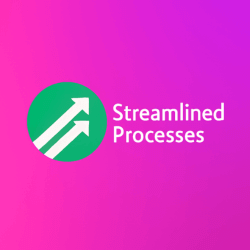For Cloud Marketing Platforms, see our main page here.
What Are Cloud Marketing Platforms?
Cloud Marketing Platforms are centralized tools that help businesses plan, execute, and track marketing activities in real time. These platforms streamline email campaigns, customer segmentation, lead management, and analytics—all through the cloud. As a result, teams can collaborate from any device or location.
Unlike traditional marketing software, Cloud Marketing Platforms do not require on-premise servers or heavy installations. Instead, users access everything through a browser. This model improves scalability and cuts IT costs. A small business can use the same tools as an enterprise, simply by upgrading their plan.
Leading examples include Salesforce Marketing Cloud, Adobe Experience Cloud, and Oracle Responsys. These platforms offer flexible integrations and detailed customer data, making them ideal for omnichannel marketing strategies.
Why Businesses Are Moving to the Cloud
Modern consumers expect personalization, speed, and consistency. Cloud Marketing Platforms deliver all three by allowing marketers to gather customer data, analyze behavior, and deliver targeted content in real time. This level of agility wasn’t possible with older, stand-alone systems.
Moreover, marketing teams need to move fast. Campaigns must be launched across email, social media, mobile, and web simultaneously. Cloud solutions synchronize these efforts without delays or technical bottlenecks. Consequently, companies benefit from faster go-to-market execution and higher ROI.
Advantages of Using Cloud Marketing Platforms
- Scalability: Add or remove features as your business changes.
- Real-time Analytics: Measure customer behavior instantly and adjust campaigns accordingly.
- Omnichannel Integration: Manage email, SMS, web, and social channels from one place.
- Automation: Automate repetitive tasks such as follow-up emails and customer segmentation.
- Customer Insights: Unified data makes targeting more accurate and effective.
How Cloud Marketing Platforms Improve Customer Journeys
Customer journeys are no longer linear. A person might see an ad on social media, visit the website days later, and then open a follow-up email next week. Cloud Marketing Platforms collect data at each touchpoint and help brands respond in a timely, personalized way.
For example, a company using a cloud-based system can send a product recommendation email seconds after a customer browses a category page. Similarly, if someone abandons a cart, the platform can trigger a reminder sequence—without developer input or technical setups.
This allows marketers to adapt to buyer behavior, creating seamless, relevant experiences across every digital channel.
Key Features to Look For
Not all Cloud Marketing Platforms are created equal. While most offer the essentials, advanced platforms go a step further to support complex strategies.
- AI-Powered Recommendations: Personalized content suggestions based on behavior and preferences.
- A/B Testing Tools: Easily test headlines, images, CTAs, and more.
- Marketing Automation Workflows: Set up logic-based campaigns for every customer segment.
- CRM Integration: Sync with your existing customer relationship tools in real time.
- Data Compliance: Ensure GDPR, CCPA, and other data privacy laws are addressed.
For instance, Adobe Experience Cloud uses Adobe Sensei AI to automate content personalization. On the other hand, ActiveCampaign focuses more on sales automation and small-business CRM integration. Therefore, your choice should reflect your audience and goals.
Comparing Cloud Marketing Platforms vs. Traditional Software
The move to cloud-based systems isn’t just a trend. It marks a shift in how marketing operations are executed. Traditional software required expensive licenses, setup time, and ongoing maintenance. Cloud Marketing Platforms eliminate those barriers with monthly subscription models, instant updates, and remote accessibility.
In the past, marketers needed technical support to create landing pages or email templates. Now, drag-and-drop builders and pre-set workflows let teams act faster—without engineering help. For growing companies, this means scaling operations without adding overhead costs.
Case Study: E-commerce Brand Scaling with Cloud Marketing Platforms
A mid-sized online fashion retailer used a cloud-based platform to consolidate their email, SMS, and social media tools. Before switching, their campaigns were scattered and poorly timed. After integrating with a Cloud Marketing Platform, they automated cart abandonment emails and retargeted social ads.
Within six months, they saw a 28% rise in conversion rates and a 42% increase in returning customer purchases. This transformation was made possible by unifying marketing tools into a single, cloud-accessible environment.
Current Trends in Cloud Marketing Platforms
AI and machine learning are shaping the next wave of Cloud Marketing Platforms. From hyper-personalization to predictive analytics, platforms are learning how to anticipate user behavior and deliver better results. For example, platforms can now adjust send times based on when individuals are likely to open an email.
Another trend is tighter integration with sales tools. Marketing no longer works in a silo, and many cloud platforms include native CRMs or APIs for smooth collaboration across departments. Furthermore, voice search optimization and personalized video content are on the rise, influencing future platform features.
FAQ: Cloud Marketing Platforms
Are Cloud Marketing Platforms suitable for small businesses?
Absolutely. Many platforms offer tiered pricing, so small businesses can start with basic features and upgrade as they grow.
How secure is marketing data in the cloud?
Reputable platforms follow strict compliance standards such as GDPR and use encryption to protect customer data.
Can I integrate a Cloud Marketing Platform with my CRM?
Yes. Most platforms support native CRM integrations or APIs that connect with tools like HubSpot, Salesforce, and Zoho.
What are common challenges during adoption?
Initial learning curves are common. However, most platforms offer training, onboarding support, and user communities to ease the transition.
In Conclusion
Cloud Marketing Platforms have redefined how businesses interact with customers. They enable fast, personalized, and data-driven campaigns that scale with your business needs. By choosing the right platform, you can boost engagement, improve ROI, and stay ahead of market trends.
Most importantly, these platforms free your team to focus on creative strategy—not technical maintenance. As marketing evolves, adopting cloud-based solutions is no longer optional—it’s essential.
This article was created with the assistance of AI tools and reviewed by our team at Streamlined Processes LLC to ensure accuracy and relevance.
Follow us on Facebook here.

